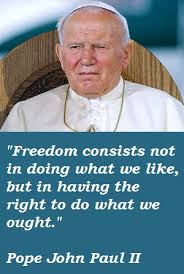--------------------
Were you moved and filled with hope when you heard those wonderful words of Jesus?
“…everyone who acknowledges me before others the Son of Man will acknowledge before the angels of God” [Lk 12:8].
 What more could we hope for than to be acknowledged before the angels? What Good News this is – God’s promise of salvation and His call to evangelization.
What more could we hope for than to be acknowledged before the angels? What Good News this is – God’s promise of salvation and His call to evangelization.And yet, sadly, I encounter so many people who, because of their sins, almost despair of achieving salvation. Among their mistakes, of course, is the idea that they, or indeed anyone, can achieve salvation. We can’t…not on our own. Salvation, like every other good thing, is a gift from God.
Yesterday, in his homily during Mass at St. Martha’s House, the Vatican guesthouse where he lives, Pope Francis said:
“One of the hardest things for all of us Christians to understand, is the gratuity of Jesus Christ’s salvation.”In other words, because God’s love is so far beyond any human love we could ever experience, we find it hard to understand, much less accept. How can God love me in my sinfulness? I always seem to be falling instead of rising, always disappointing myself, always disappointing God.
 |
| Pope Francis blesses a prison inmate |
As Pope Francis suggests, how much better it would be if we would only focus on God’s great commandment:
“You shall love the Lord, your God, with all your heart, with all your being, with all your strength, and with all your mind, and your neighbor as yourself” [Lk 10:27].This is the commandment that saves. This is the love that truly reflects God’s gratuitous love for us. How did St. Peter put it?
“Above all, let your love for one another be intense, because love covers a multitude of sins” [1 Pt 4:8].Do you and I truly believe that the Lord saves us freely, that we have done nothing to merit salvation? I hope so, because this is the truth, this is the Good News we are called to bring to others. This is the remarkable love, God’s love, that we are called to share with the world.
And it is through this sharing of God’s love that we can acknowledge Jesus Christ before others. Never forget what St. Paul wrote to Timothy:
“God our savior… wills everyone to be saved and to come to knowledge of the truth” [1 Tim 2:3-4].It is only we who place limits on God’s limitless love. You and I, then, must put aside our judgment of others, and instead do God’s work in the world by helping others “come to knowledge of the truth” which is Jesus Christ...
For He, and only He, is “the Way and the Truth and the Life” [Jn 14:6].








